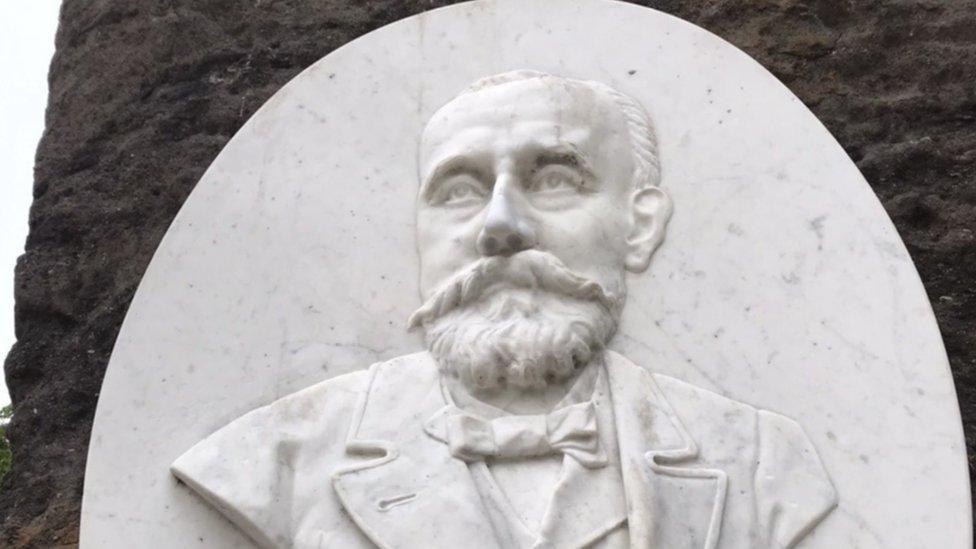Zachariah Pearson's generous gift and popular myth explored
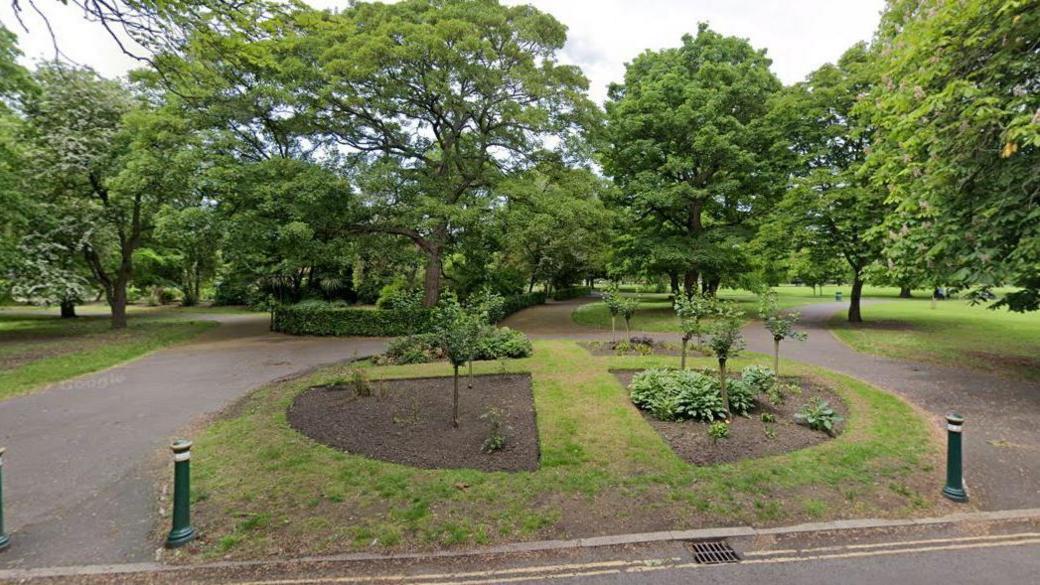
Pearson Park in Hull was the first of its kind after being gifted by philanthropist Zachariah Pearson
- Published
In the centre of Hull, flanked by rows of trees and grand houses, is Pearson Park - a gift to the people.
Philanthropist, wealthy ship owner and then mayor Zachariah Pearson had a vision, according to his great, great granddaughter Dr Marian Shaw.
"He thought for a long time that the people in the middle of the city in the industrial revolution were completely smoked out by all the factories, couldn't breathe properly and there was huge illness", she recalls in the latest episode of BBC Radio Humberside's Hidden East Yorkshire podcast.
Today, it still serves the same purpose.
In warmer months, it is alive with the sound of children playing. In winter, it is icy and quiet, but whatever the time of year, the park is a beautiful and calm haven sandwiched between the busy streets of Princes Avenue and Beverley Road.
Spanning 27 acres, it has recently been restored and boasts an ice cream kiosk, lake, band stand, conservatory and playground.
Zachariah Pearson: The man who gifted Hull its first park
Back in 1862 when it was established, it was the first public park of its kind in the city.
"There was a national move to give the working people more fresh air so they wouldn't get ill and have somewhere safe to live," Marian continues.
"In the end, Zachariah bought the land and presented it fait accompli."
Marian says she decided to delve further into Pearson's past after being inspired by a statue of him on her grandmother's mantlepiece.
"He built up his business and became quite rich by being opportunistic and trading around the world," she says.
Popular legend
One of many fascinating stories she uncovered during her research was about a party to celebrate the opening, which Marian believes could possibly debunk a common myth that lasted for more than a century.
Metres away from the park, streets such as Princes Avenue and Newland Avenue are lined with pubs and restaurants, but these only began to appear in such numbers in the 1990s.
The popular legend with residents and pub-goers is that Pearson, on gifting the park to the city, did it on the condition that nowhere within a mile would serve alcohol and that the pubs began to appear only when that law expired.
Marian says there is no evidence that he said any such thing and says testimonies from those present at the opening of the park described a party with "prodigious quantities of beer and beef being imported [for the occasion] and endless toasts with good wine".
"I don't know that he drank them, but he certainly didn't ban them," Marian adds.
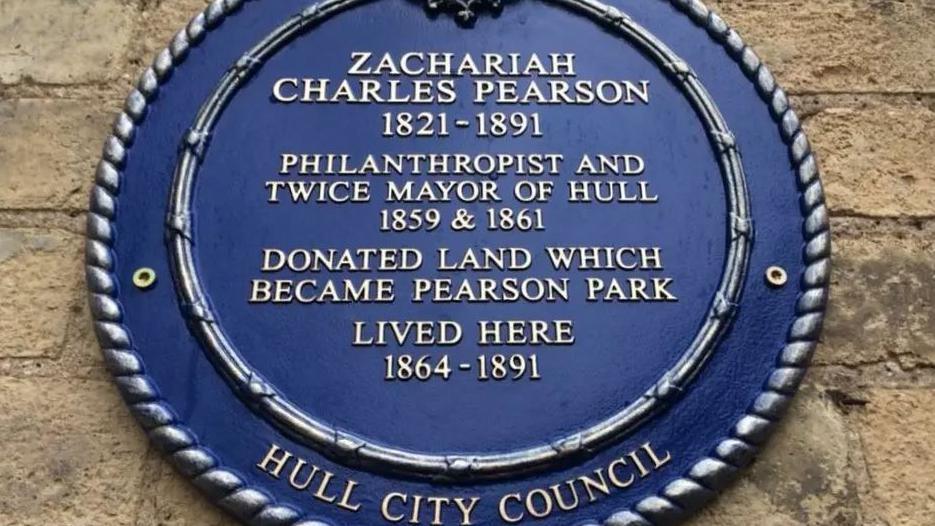
A blue plaque marks the house where Zachariah Pearson lived between 1864 and 1891
A blue plaque on 64 Pearson Park marks the spot where he lived for 27 years before his death in 1891.
However, the park was not the only thing he was remembered for.
He helped with a dock improvement scheme to improve the efficiency of Hull as a port. He also gave money to convert a building into a Sailors' Home and for the opening of the Hull Temporary Home for Fallen Women.
Serving the city twice as mayor in 1859 and 1861, he was linked to slavery and went bankrupt when he owed more than £600,000 after a failed attempt to bring slave-grown cotton to Hull's mills during the American Civil War.
He was called "a swindler" by opponents and polarised opinion, but as thousands of people prepare to enjoy a summer in the park once more, one thing that is not up for debate is that, thanks to renovation work by Hull City Council, it still retains its splendour and importance today.
"He would be delighted that people love it and that it's been restored," Marian says.
Listen to highlights from Hull and East Yorkshire on BBC Sounds, watch the latest episode of Look North or tell us about a story you think we should be covering here, external.
Related topics
- Published6 March 2018
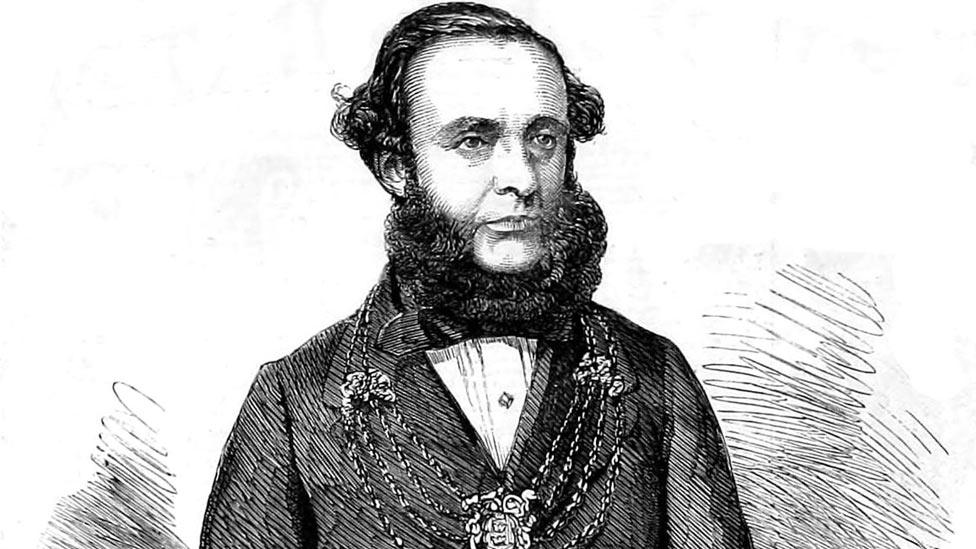
- Published21 November 2023
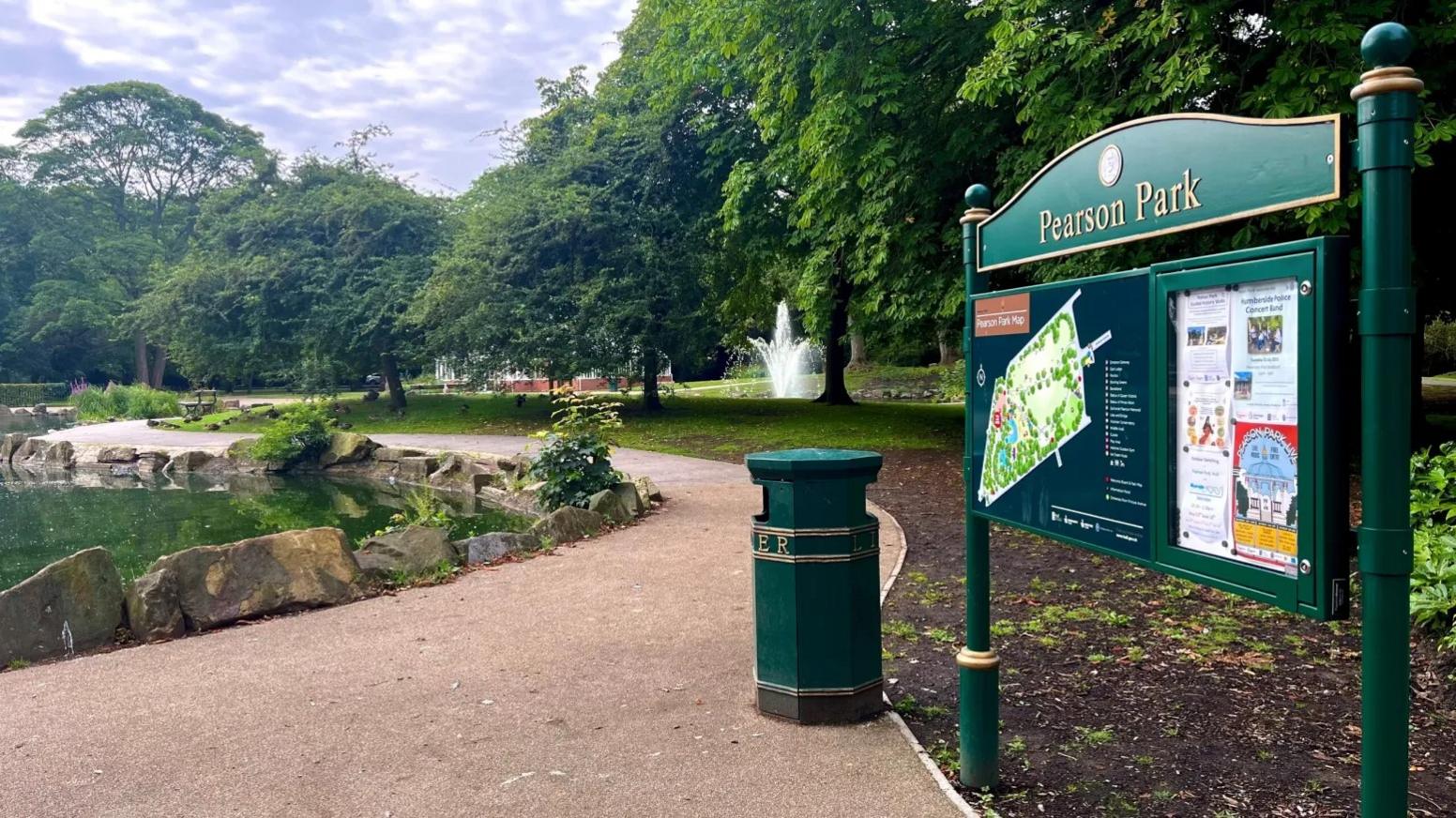
- Published19 June 2020
